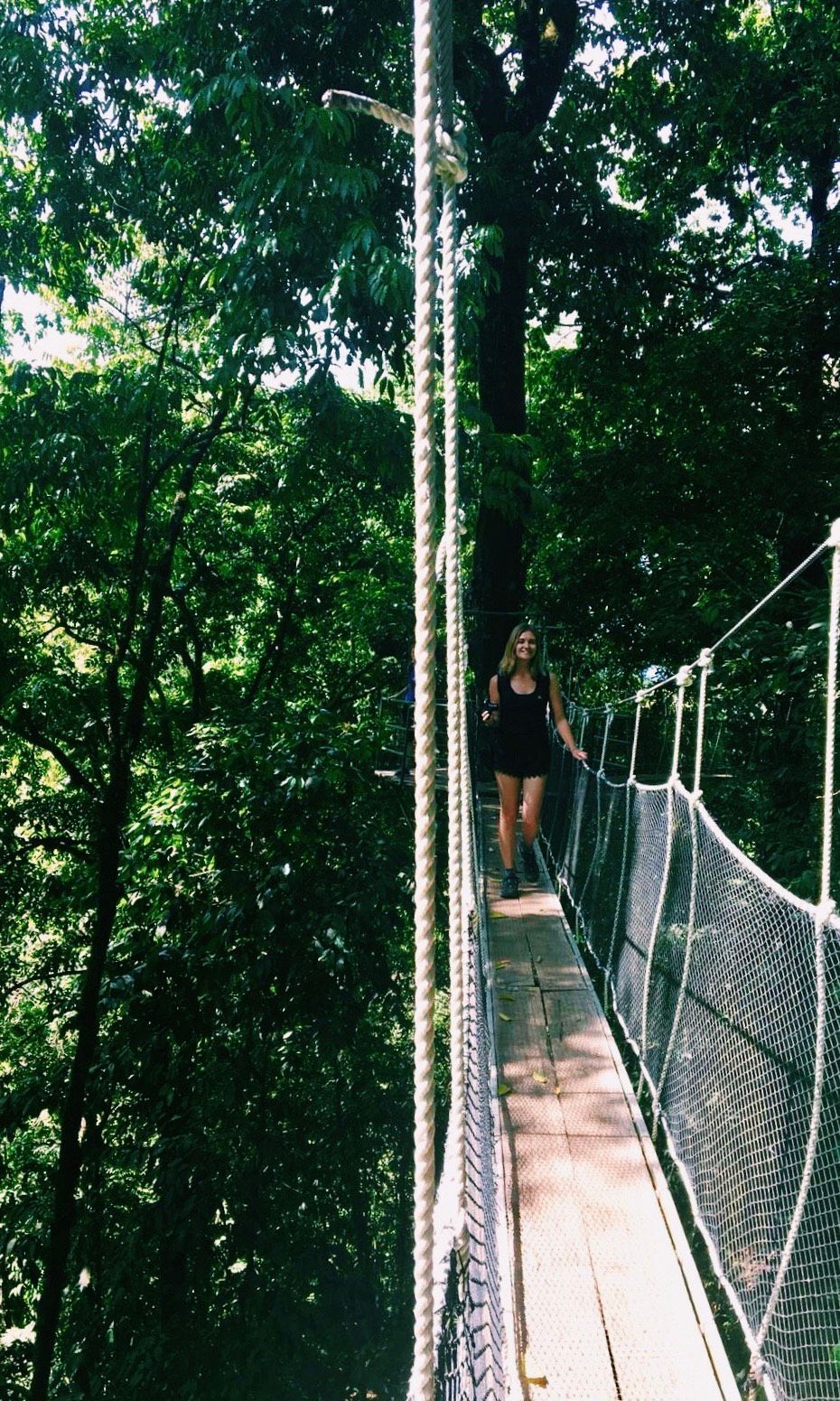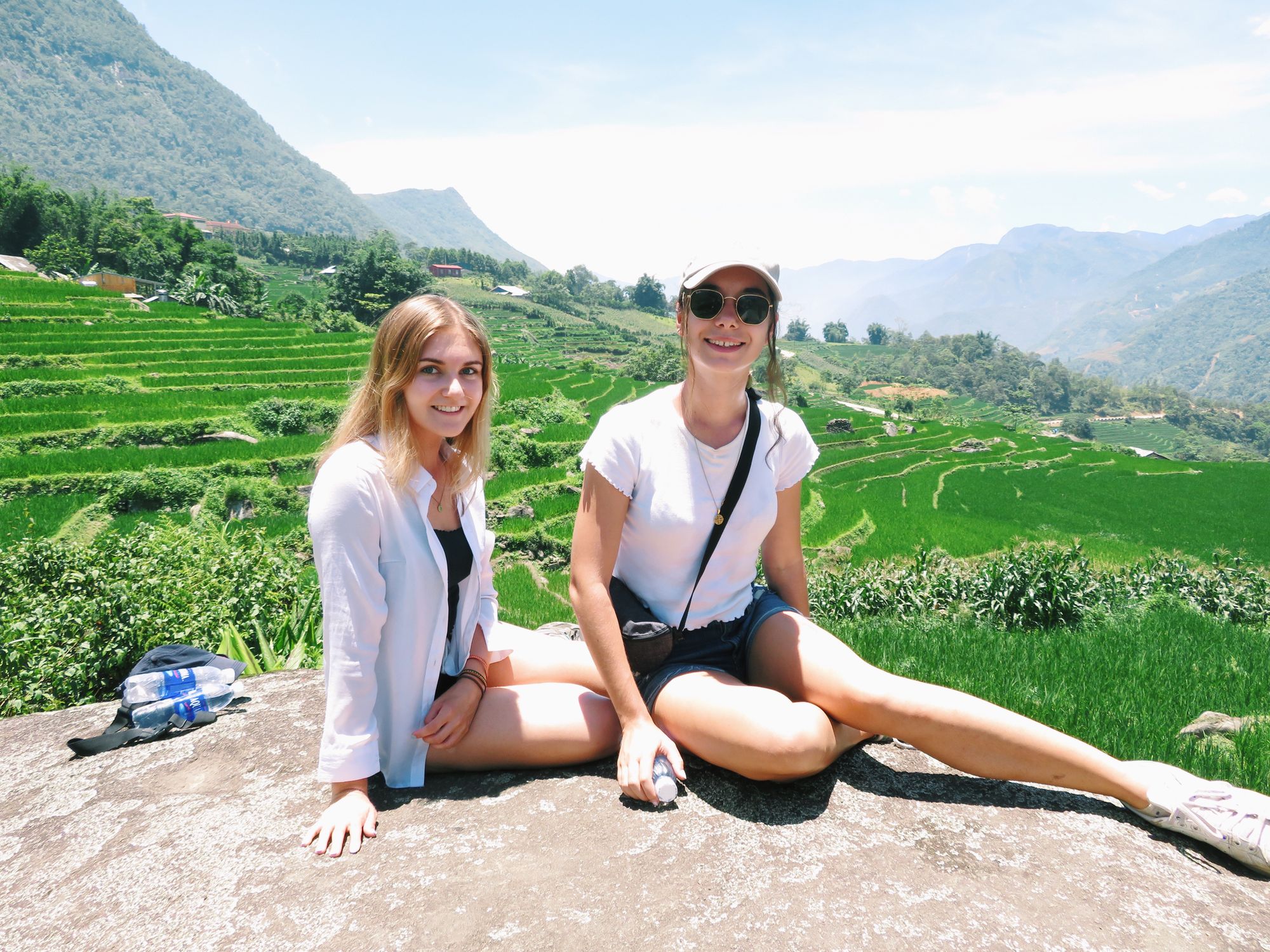By Georgia Taylor, 1st year Politics and Spanish student
The Croft Magazine // Georgia Taylor talks about her experiences travelling solo as a woman, and the key takeaways from her adventures.
Storm Ciara hit Bristol this week and brought with it severe flooding, strong gales and unrelenting rain that turned my Monday morning commute into a cold shower. As I listened to the howling wind from the safe confines of the lecture theatre, I have to admit I found myself daydreaming about travelling to somewhere warmer, sunnier, and hopefully with nicer architecture than the ASS library. This time last year I was doing just that; I was about to set off on my first solo travel trip.
Despite the media portraying its ‘dangers’, solo female travel is actually very common- in 2017 TripAdvisor reported that globally 74% of women have travelled solo before. Predictably, some of my family were uneasy about me going, and although I didn’t want to admit it, I also had my own doubts about solo travelling as a female. In my hometown I can almost always go and do what I please without fear of being in danger, but how would I cope when I had to contend with the unfamiliarity of a new place, culture, language and - possibly - an attitude towards women that differ from those that I know? In my experience, the answer is far less intimidating and overwhelming than you may think. These are my key takeaways from my experience as a solo female traveller.

Adhering to cultural norms. Respecting and fitting in with the culture of the place you’re travelling to extends further than dressing modestly in religious sites or respecting male and female segregated areas (although you should of course do both of these if you want to avoid stares or more serious penalties). It is just as important to remember that the people you meet will likely have different views to your own which can be especially tricky to navigate in conversation. As frustrating as it was to be told by my tour guide in Vietnam that women cannot be good drivers because ‘their brains can’t cope with doing many things at once’, I knew that as an English girl who couldn’t even pronounce ‘hello’ in Vietnamese correctly, he was unlikely to change his mind. It goes without saying that because a culture may be different to your own, it shouldn’t be viewed as inferior or backward. It is much more valuable to instead find out why a culture may have certain attitudes, and also to remember that people’s individual values vary regardless of the culture of the country.
"How would I cope when I had to contend with the unfamiliarity of a new place, culture, language and - possibly - an attitude towards women that differs from those that I know?"
Safety is the most important. It may seem excessive to presume the worst but in the unlikely event that you get into a dangerous situation, things can escalate much quicker if you haven’t given some thought to your general safety. A few simple ways to ensure your basic safety are to pack light, making you much more mobile; carry a fake phone or wallet with an expired card and a few bills in case of robbery; and never walk alone at night - you likely wouldn’t do this in your home country so you shouldn’t do it when travelling. Research areas thoroughly before you travel there and download maps and addresses so that you can access them offline. Not acknowledging shouts and catcalls and even in some countries wearing a wedding ring are good ways to detract unwanted attention.

Most people genuinely want to help you. For me this became evident at times when I needed it most. I was on a very long and very full bus journey in Costa Rica when I got into a conversation with a man which quickly turned uncomfortable and suggestive. I began to worry that it was going to get worse, but I ignored him and thankfully he got off the bus fairly soon. As soon as he did, a middle-aged woman sat down next to me and quietly asked me if I was okay, and that she was sorry about what had happened. Her small act of kindness and solidarity was an extremely welcome source of relief in that moment, but it also reminded me that there is still reason to believe in the generosity and decency of strangers. There is a fine balance between being cautious and trusting, but I found that a little openness to other people’s help led to some of the most unexpected and brilliant experiences during my trip.
Featured Image: Epigram / Georgia Taylor
Find The Croft Magazine inside every issue of Epigram Newspaper









